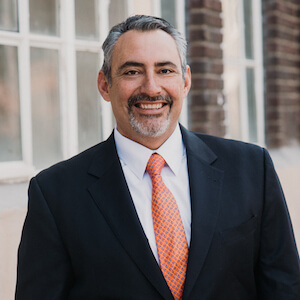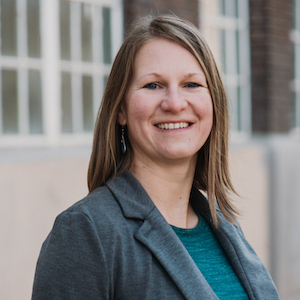When students feel connected to their communities from an early age, they are motivated to give back in meaningful ways.
Tony Monfiletto and Deborah Good, Leaders at Future Focused Education
COVID-19 and distance learning is putting significant strain on our education system. And, the lack of in-person connection will undoubtedly result in increased drop-out rates—particularly among those who were already frustrated or bored at school before the pandemic began.
When the standards-based, mechanized instruction they received at their conventional high schools was simply moved to a virtual environment—removing what little accountability such in-person learning provided—the choice to disconnect was easy.
National estimates say the rate of disconnected youth—meaning those who are not in school and not employed—could skyrocket to 25 percent during and after the pandemic. Measure of America writes that COVID-19 has likely “erased 10 years’ progress in reducing the national youth disconnection rate in a matter of months.”
It’s clear that we’re losing students fast. And, the impact on young people already disadvantaged by poverty and racism will be greatest.
So, how can we make online learning more connected? And, is more seamless access to early workforce skill building, mentors, and role models the link to reestablishing that connection?
Cultivating Youth-Employer Partnerships
One answer is creating opportunities for them to make tangible and meaningful contributions in partnership with employers. At Future Focused Education, a nonprofit in New Mexico, we’re giving students purposeful, real-world learning experiences. Even better: we’re paying them. And, the results have been incredible.
Take the story of Melani Alonso as a prime example. Melani has been a caretaker for her mother since she was three years old. Seeing the daily pain and struggle her mother was going through due to her failing kidneys, Melani knew she wanted to be a doctor when she grew up, so she could heal her mother.
But, within her conventional school setting, Melani was unable to tap into her burgeoning passion. Worse still, the years of experience she had picked up caring for her mother did not fit within the narrow standards of assessment she was being measured by.
All this changed when Melani joined Future Focused’s X3 Internship Program—a paid work experience for high schoolers outside the classroom, inside the workforce. Thanks to the two internships she experienced before graduating, Melani secured two certifications as a nurse assistant and home health aide—qualifications that will boost her future opportunities when applying to nursing or medical school.
Melani is one of 140 students we have paired with 58 local employers throughout New Mexico. These real-life work environments have provided these students the opportunity to experience learning that is relevant to their interests and passions—preventing many from falling into the trap of student disconnection and, moreover, exposing them to future possibilities they never imagined they’d have access to.
Revealing the Power of Community Connection
Albuquerque’s business community has stepped up to support our young people by collaborating with Future Focused to make this year’s virtual internships possible. Like us, they know our communities’ resiliency and future rely on young people having uninterrupted access to supportive mentors, great learning, and valuable work opportunities.
When students feel connected to their communities from an early age, they are motivated to give back in meaningful ways. In New Mexico, we pride ourselves on our deep connection to the people, land, and history of our community.
When we see an X3 intern working with healthcare providers to help tios and abuelas lower their blood pressure or manage their diabetes, not only are those students tangibly helping their community, they’re becoming rooted in purpose and connection.
When we see an X3 business partner flip the stereotype they brought in about young people by personally mentoring a capable, curious, ambitious high schooler, that business leader feels more invested in the upcoming generation of workers and young talent.
Instead of segmenting our students into college or career paths based on outdated and racist assumptions, what if we created a more equitable model?
Tony Monfiletto and Deborah Good, Leaders at Future Focused Education
When we think about increasing racial equity, we must think about it in terms of opportunity. The Future Focused vision is to give our young people the same experiences more affluent and privileged students have access to, regardless of what’s provided within their schools.
The youth we serve live in community-wide systems of unjust systematic racism that become a barrier to developing their social capital. Social capital is a function of the relationships garnered through your private and professional life, and the X3 program is aimed at closing the gap between those with privilege and those without.
This is also a strategy with immense benefits to our society at large. Breaking down the silos between school and work have incalculable benefits for reducing isolation and disconnection. Additionally, the quantifiable benefits are staggering. By keeping students in school and/or employed, we can literally save trillions of dollars.
The Aspen Institute finds that the personal and public costs of not changing the trajectories of disconnected youth are $6.3 trillion dollars over the lifetimes of all current “opportunity youth.” That’s because when youth are not connected with opportunities that lead to higher-wage jobs, they aren’t contributing their full talents to the community or economy, resulting in greater reliance on government assistance, increased need for mental health aid, and greater odds of becoming incarcerated.
Meanwhile, the advantage of ensuring all students’ interests and career aspirations are meaningfully engaged is clear. Research indicates when students reach their 30s, those who had been working or in school as teens are 45 percent more likely to own a home, 42 percent more likely to be employed, and 52 percent more likely to report excellent or good health.
When people are engaged in their learning and communities growing up, they see an increased likelihood for a better quality of life. For example, the median income of a high school dropout is $18,000 compared to $25,000 for a high school graduate. Just by keeping a student in school through graduation, we are improving their ability to build wealth and find higher paying jobs.
If we combine this with access to mentorship, a professional network, and the opportunity to acquire and build 21st-century job skills, we build a bridge to measurably greater wages, life expectancy, and happiness.
And, not only does the student have a brighter future, they bring up the prosperity of their whole community alongside them.
A Time for Transformation
It has been well documented that the college-or-career approach to educating youth is a form of racism and classism. Low-income youth and students of color have been disproportionately funneled into vocational education while more enriching educational experiences are reserved for their wealthier, white, college-bound classmates.
Paid internships for students in danger of disconnecting, most of whom are low-income students of color, work to alleviate intergenerational poverty, bridge the opportunity gap, build 21st-century skills, and provide onramps into college coursework for those historically diverted away from post-secondary options.
As Grant Lichtman highlighted at the beginning of the pandemic, COVID-19 is both a formidable challenge and a transformational opportunity. And, we will miss this opportunity if we don’t act quickly.
Instead of segmenting our students into college or career paths based on outdated and racist assumptions, what if we created a more equitable model? A model where real-world work opportunities are embedded, tailored to the interests of each individual, and woven into curricula to better equip all students to navigate (and thrive) in a rapidly changing future?
This would give students more agency to explore, learn, and imagine different pathways for themselves with guidance from mentors and professional networks. With COVID-19 forcing school districts to adapt, digital internships make this exploration more accessible than ever.
If we had local employers working with local students in every school district and community across the nation, we could get one step closer to radically transforming education into an engine of social justice and equity that honors all young people as curious, wondrous, and capable of fulfilling their boundless potential.


